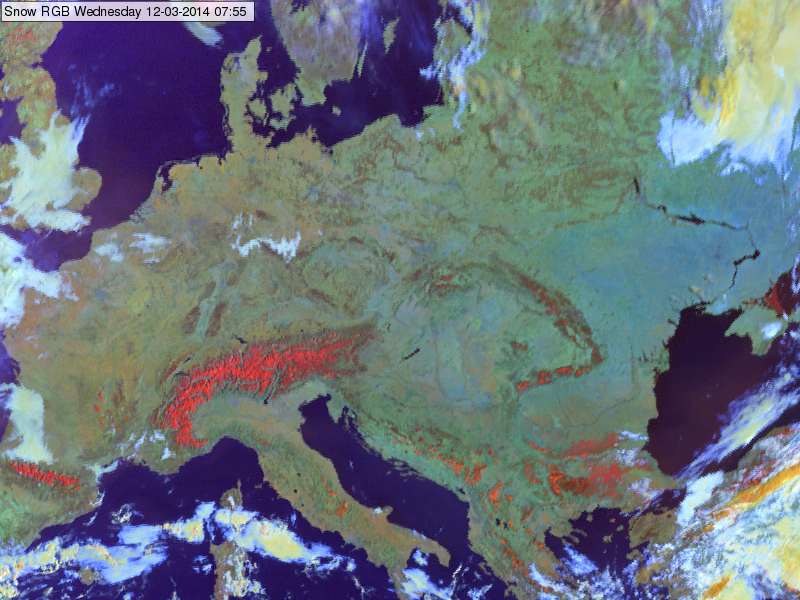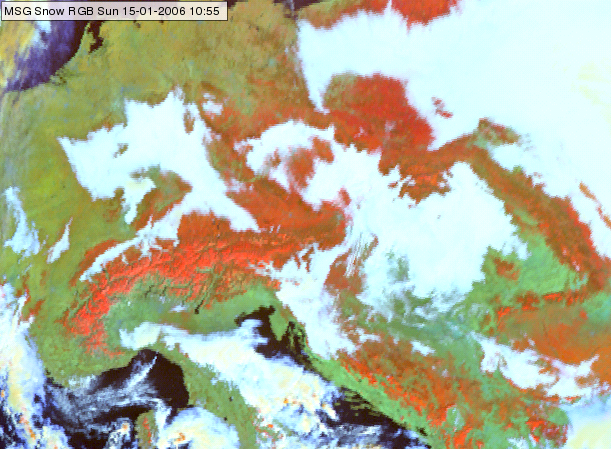Land
Snow free, non deserted vegetated land appears green, greenish or brownish in the Snow RGB images depending on the (solar and satellite) viewing angles, the surface type, and the type, and the development of the green vegetation. Bare soil may appear slightly bluish (see the image on the left side).
In the image below, most of European land is snow free. If there is snow on the ground, the snowy areas appear red- orange: see for example the Alps, Pyrenean and Carpathian Mountains.

Meteosat, SEVIRI Snow RGB for 12 March 2014 07:55 UTC
In the ‘real’ winter months at mid latitudes (when this image is most often used) land appears mostly greenish, like in the image below taken in January.

Meteosat, SEVIRI Snow RGB for 15 January 2006, 10:55 UTC
Explanation of the colours of non deserted snow free land (see the recipe):
• The reflectivity values are comparable in the 0.8 and 1.6 micrometer channels and very low in 3.9 micrometer channel. The reflectivity depends on the surface type, and also on the type and development stage of the vegetation. Additionally it considerably depends on the viewing angles.
• After the linear stretching (of the channel depending reflectivity ranges, see the recipe on the left) and gamma correction, the green component often becomes strongest, and the blue component gets closer to the red and green components.
The resulting colour depends on the relative magnitudes of the colour components.
• For vegetated area the blue component is low. The land appears green or greenish brown.
-------> Wintertime (with less vegetation and lower solar elevations) the land appears typically green, forests may appear brownish.
-------> In other seasons the red and green signals are often comparably strong and so the land appears more often brownish (usually with green tones).
• For bare soil area the blue component may become slightly higher than the other two components, in these cases the land may appear greyish blue.

